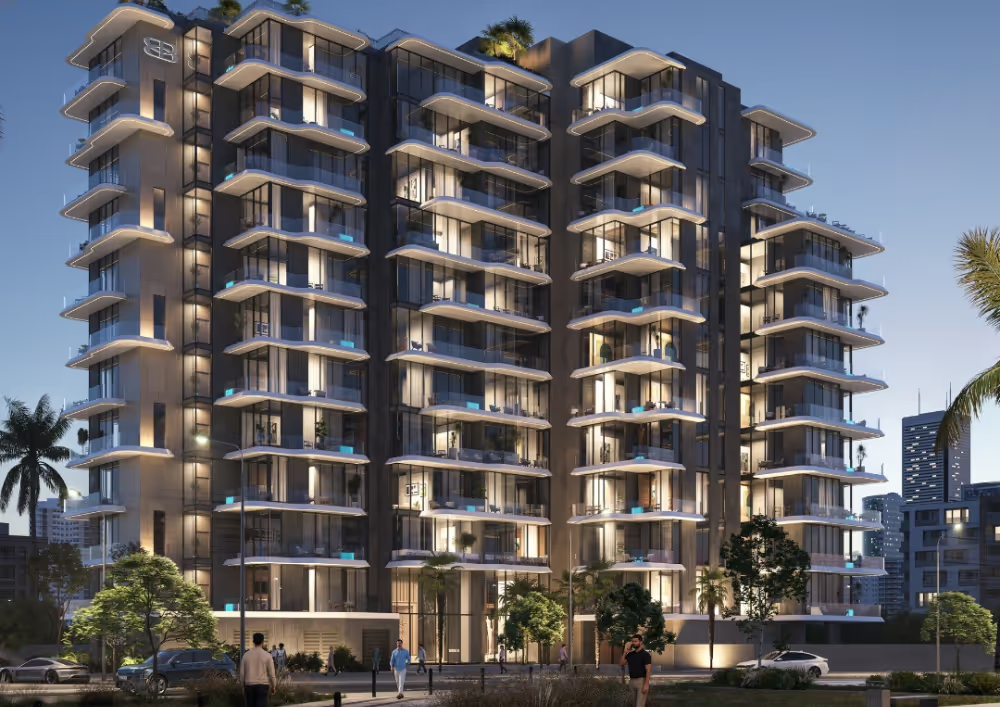How to Save for a House in Dubai on a Monthly Salary

Owning your own home in Dubai is a dream for many—an oasis of stability in an ever‑changing city. But with soaring property prices, the first step—saving for that down payment—can feel overwhelming. The good news? With the right plan, even a monthly salary can be enough. Whether you're an expat or a UAE national, this guide gives you the practical steps, simple tools, and motivational mindset to turn that house‑in‑Dubai dream into a reality.
Know Your Goal: Define Your Property & Savings Target

Start by locking in your property goal
- Choose your home: 1‑ to 3‑bedroom apartment in communities like Arjan, JVC, Business Bay.
- Estimate cost: E.g. AED 1 million for a 2 BHK in Arjan.
- Down payment needed: 20% = AED 200,000.
- Timeline: If you aim to buy in 2 years, that means saving AED 8,333/month.
Tip: Use an online mortgage calculator to check monthly payments after deposit.
By defining a clear, number‑based goal with a deadline, you'll stay focused and motivated—turning “maybe someday” into “right here, right now.”
Create and Stick to a Monthly Budget

Start tracking on‑hand expenses:
- Needs (50%): Rent, utilities, groceries.
- Wants (30%): Dining, entertainment, subscriptions.
- Savings & Debts (20%): Your house savings should live here.
Steps to take:
- Use budgeting apps like Spendee or MoneyWise.
- Automate a monthly transfer of “Savings” to a dedicated savings account right after salary credit.
- Audit discretionary spend: reduce dining out, cut unused subscriptions, negotiate utilities and telecom plans.
Small adjustments—like UAE’s VAT-free breakfast at home or swapping taxis for ride-shares—can free up AED 1,000–2,000/month without changing your lifestyle. Automate saving so skipping it feels like not paying rent—non-negotiable and essential.
Increase Income & Reduce Costs Cleverly

Saving is easier when your income grows and your bills shrink:
- Grow income: Moonlight as a freelance designer, teach English online, or take on weekend consulting.
- Earn passive income: Rent out a parking space, Airbnb a spare bedroom, or flip items via Dubizzle.
- Slash costs: Bulk shop at outlets, ditch cable for streaming, switch energy providers, carpool, or use RTA public transport.
Even an additional AED 1,500–2,500/month rapidly boosts progress. Example: pairing savings (AED 8,500) with side income (+2,000) = AED 10,500 monthly, hitting AED 200 k in under 19 months!
Smart Savings Tools & Strategies
A good savings account can earn while you hold:
- High‑interest savings accounts: Some UAE banks give up to 1–2% on balances—a risk-free boost.
- Short-term fixed deposits (FDs): Lock AED 50–100k for 6–12 months to get 2–3% interest.
- Loyalty or payroll-linked schemes: Free monthly transfers, waived fees—find these perks in major banks.
- Use easy savings apps: Set rules like “round up every purchase to next AED 10 and save the difference.” It’s painless but impactful.
Bonus tip: Avoid speculative investments if you’re buying soon—inflation or market swings could cost more than they earn.
Review Progress & Stay Flexible
Monthly check-ins matter:
- Did your savings land on time? If not, reduce the “wants” bucket.
- Did you get a raise or bonus? Split increases—save half, live on the rest.
- Did your lifestyle cost spike? Adjust automations to keep accelerating.
Celebrate milestones: AED 50k saved = small weekend celebration. AED 100k = new savings piggy bank or weekend staycation. Acknowledging milestones keeps motivation high and the journey feels achievable.
Prepare for Surprises
Life happens. Plan for it:
- Emergency fund: Save 3–6 months of expenses BEFORE you start saving for the down payment.
- Debt freeze: Avoid new loans while saving—debt payments eat into savings.
- Cost escalations: Dubai rent may rise—adjust targets if needed.
By protecting savings against shocks, you avoid tapping into your goal and stay on track—even if life surprises you.
From Saving to Buying: The Next Phase

Once your 20% is saved:
- Connect with a RERA-registered agent to compare mortgage offers.
- Get pre-approval: banks in Dubai require about a month for expats.
- Save an extra AED 20k for fees—DLD registration, NOC, valuation, and down payment transfer fees.
- Choose your property: target offers from developments like Bond Enclave in Arjan or resale units. Use your budget calculator to compare options.
Preparation equals power—everyone should feel ready to buy once the savings are there.
Conclusion
Buying a house in Dubai on a salary isn’t impossible—it’s about planning, consistency, and a few smart financial decisions. Set a clear goal, automate your savings, boost income, protect against surprises, and when the time is right, proceed with confidence. Try for AED 200,000 in budgeted savings, and you’ll be ready for your mortgage start line. Your dream home in Dubai is closer than you think—because every AED 1,000 saved takes you a step nearer.
FAQ’s
Q1: How much do I need to save monthly to buy a house in Dubai?
To buy a property worth AED 1 million, you'll typically need to save at least AED 8,000–10,000 per month over 2 years for a 20% down payment.
Q2: Can I buy a house in Dubai with a salary of AED 15,000?
Yes, many expats purchase properties in Dubai with a monthly salary of AED 15,000. It depends on your budget, loan eligibility, and financial discipline.
Q3: What are the best ways to save money for a down payment in Dubai?
Create a budget, automate monthly savings, reduce discretionary spending, take up freelance work, and use high-interest savings accounts or fixed deposits.
Q4: Is it better to rent or save to buy property in Dubai?
If you plan to live in Dubai for over 5 years, buying is usually better due to stable mortgage costs, long-term equity, and tax-free capital appreciation.
Q5: What are the hidden costs of buying a house in Dubai?
In addition to your down payment, budget for Dubai Land Department fees (4%), mortgage registration (0.25%), agent commission (2%), and legal/valuation fees.
Q6: How can I save for a home on a single income in Dubai?
Focus on a strict budget, consider sharing accommodation to reduce rent, take side gigs, and automate monthly savings before other expenses.
Q7: Are there government schemes or incentives for first-time buyers in Dubai?
Currently, Dubai doesn’t offer first-time buyer grants, but expats can access competitive mortgage rates and flexible off-plan payment plans with developers.






